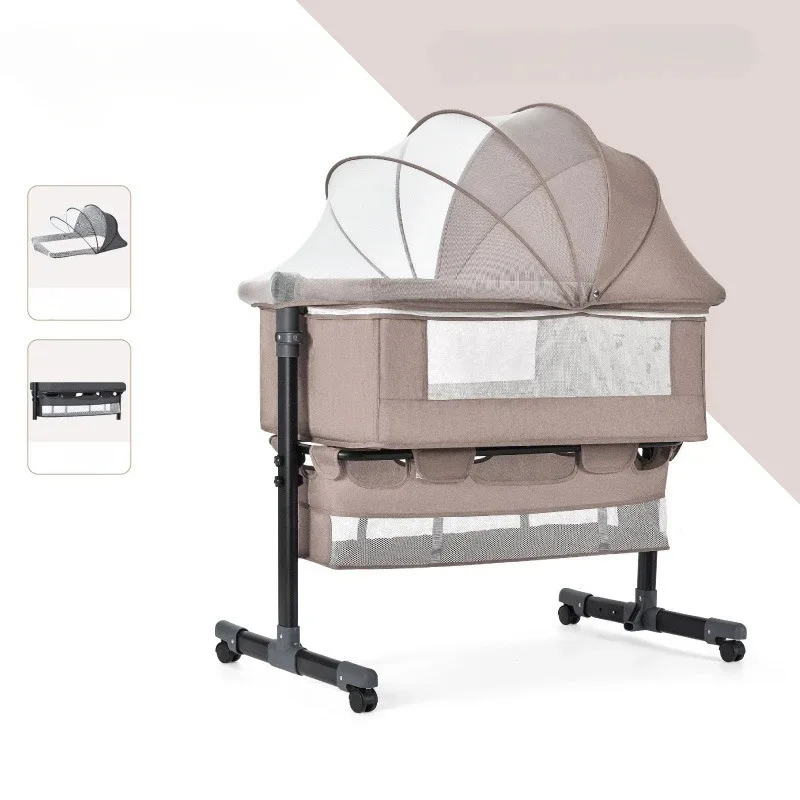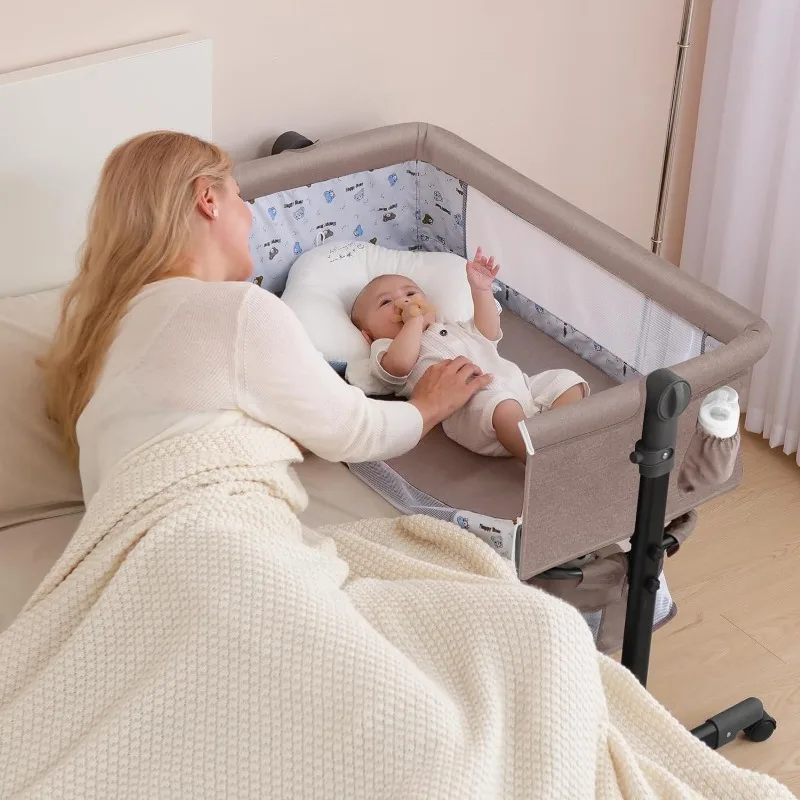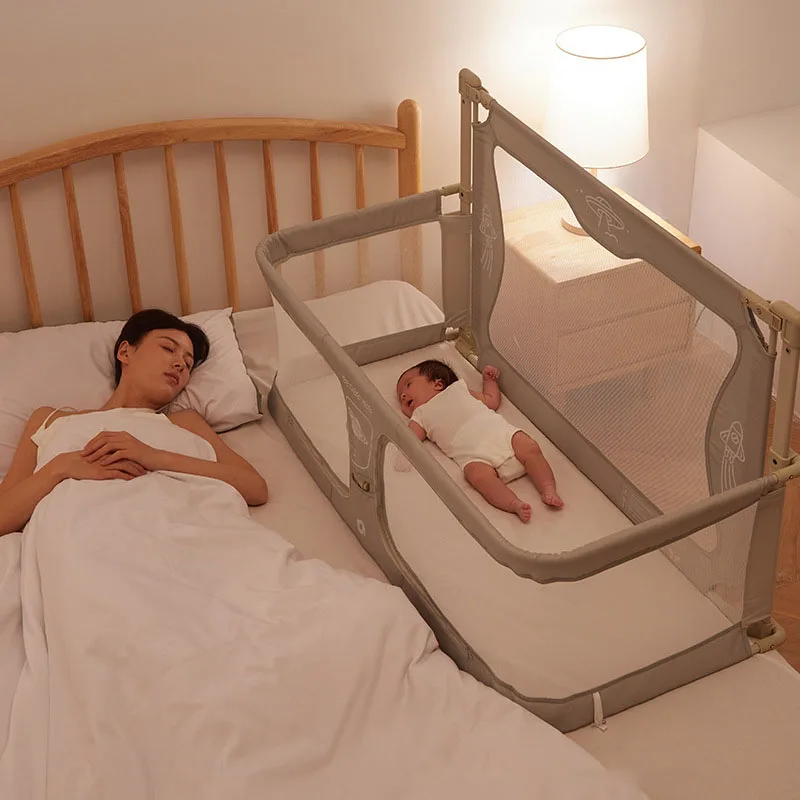Initial Assessment After the Fall
When your baby experiences a fall, it can be alarming. Take a deep breath, remain composed, and promptly evaluate your child’s state. Begin by ensuring your baby is responsive and conscious. If they’re awake, observe their behavior and look for any obvious signs of injury, such as irregular breathing, bleeding, or visible cuts.
Gently examine your baby’s head for bumps or swelling. Avoid moving your child abruptly in case of a possible neck or spine injury. Check if they can maintain eye contact, are crying in a usual manner, and can recognize your presence, indicating responsiveness. Additionally, inspect their limbs and body for any abnormalities or discomfort.
If everything appears normal, keep an eye on your baby for the next several hours. Be vigilant for any delayed reactions to the fall, such as changes in consciousness, feeding patterns, or increased fussiness. Your baby’s regular behavior is a good indicator of their wellness post-fall.

Recognizing Signs of Severe Injury
After a fall, it’s vital to recognize signs that may point to a severe injury. Serious injuries need quick action and often require medical attention. Look for these critical indicators:
- Unusual or prolonged crying can signal distress.
- Difficulty in waking up or unusual sleepiness may mean a more serious issue.
- If one pupil appears larger than the other, it could be a sign of head trauma.
- Vomiting more than once could suggest a concussion or other injury.
- Clear or bloody fluid draining from the ears or nose warrants immediate medical aid.
- Unsteady walking or weakness in limbs can be signs of a concussion or fracture.
- Dents or bulges in the skull suggest possible skull fractures.
- Excessive irritability or change in normal behavior might indicate pain or injury.
Any of these symptoms could mean a severe injury and should not be overlooked. It’s especially important to act fast if multiple signs are present. In these instances, contact emergency services or go to the hospital right away. Monitoring your baby following a fall is crucial. Even if initial signs do not indicate a severe injury, symptoms can appear later. Keep your baby in close observation for any delayed reactions.
Immediate Steps to Take if Serious Injury Is Suspected
If you suspect a serious injury after your baby falls off the bed, act fast. Here’s what you should do immediately:
- Stay Calm: Keep a clear head to make the best decisions for your child.
- Do Not Move Your Child: If they show signs of neck or spine injury, avoid moving them.
- Call Emergency Services: If your child is unresponsive, has trouble breathing, or you notice serious symptoms, dial 911.
- Apply Pressure: If there’s bleeding, use a clean cloth and apply firm pressure.
- Look for Consciousness: Gently speak to your child or touch them to see if they respond.
- Avoid Food or Drink: Don’t give anything by mouth if a head injury is suspected.
- Monitor Breathing: If breathing seems irregular or stops, start CPR if you’re trained.
- Prepare for Transport: If you must go to the hospital, bring health records and a comfort item for your child.
Remember, time is critical when dealing with potential head injuries. By following these steps, you help ensure the best outcome for your baby.
When to Seek Emergency Medical Attention
After a baby falls off the bed and hits their head, knowing when to seek emergency medical attention is crucial. Ensure your child receives the care they need by watching for these urgent signs:
- Loss of Consciousness: If your baby loses consciousness, even briefly, seek immediate medical help.
- Abnormal Breathing: Difficulty or irregular breathing patterns are a sign to get emergency care.
- Serious Wounds: Deep cuts or bleeding that does not slow with pressure must be addressed quickly.
- Seizures: Any shaking or twitching that resembles a seizure warrants a trip to the emergency room.
- Fluid Discharge: Blood or clear fluid from the nose or ears suggests a serious injury.
- Unequal Pupils: This could be a sign of a severe head injury; get medical attention fast.
- Vomiting: Repeated vomiting is a concerning sign after a head injury.
- Behavior Changes: If your baby is unusually irritable or their behavior changes drastically, they need to be seen by a professional.
Don’t hesitate to seek emergency medical care if your baby exhibits any of these symptoms after a fall. It’s better to err on the side of caution to ensure your baby’s safety and health. While some falls result in minor bumps, others might pose serious risks that require professional evaluation and care.

Head Injuries: What to Watch For
When your baby suffers a fall and hits their head, vigilance is key. Head injuries can range from mild to severe, so it’s important to know what symptoms to look for:
- Watch for changes in behavior. If your baby seems more irritable or lethargic than usual, this could signal a problem.
- Check for signs of physical distress such as continuous crying, which could indicate pain or discomfort.
- Be aware of any vomiting. Throwing up more than once after a fall can be a sign of a concussion.
- Observe their eyes. Unequal pupil sizes might point to a severe head injury.
- Inspect the head for bumps or swelling. Visibly swollen areas could mean there’s a more serious issue at hand.
- Look out for fluid. Blood or clear fluid coming from the nose or ears needs immediate medical attention.
- Notice if there’s a lack of coordination. If your child is unsteady or walking abnormally, they may need to be evaluated.
These symptoms can develop right after the fall or may appear hours later. Keep monitoring your child closely, even if they initially seem fine. If you observe any of these warning signs, or if you feel unsure at any point, err on the side of caution and seek medical help.
Managing Minor Bumps and Bruises at Home
When your baby has a mild fall, home care can often help. Here are simple steps to follow:
- Stay Composed: Your calmness can soothe your baby more than you know.
- Check for Injuries: Gently look for any bruises or bumps on your baby’s body.
- Cold Compress: Apply a cold pack wrapped in cloth for comfort and to reduce swelling.
- Comfort Your Child: Hold and console your baby with soft words and affection.
- Monitor Symptoms: Watch your baby for new signs of injury in the next 24 hours.
- Pain Relief: If your pediatrician agrees, give the right dose of children’s acetaminophen.
- Keep Baby Rested: Limit play and let your baby relax as much as necessary.
- Hydrate: Offer your baby plenty of fluids, like milk or water, to stay hydrated.
Remember, if a bump or bruise worsens or your baby’s behavior changes, contact your doctor.
Preventive Measures to Avoid Future Falls
Preventing falls is crucial to keep your baby safe. Here are essential steps to minimize risks:
- Supervise Always: Never leave your baby alone on beds or high surfaces.
- Use Safety Gates: Install them at the top and bottom of stairs.
- Secure Furniture: Anchor dressers and TVs to avoid tipping.
- Floor Play: Encourage floor-based play in safe areas.
- Safe Sleeping: Ensure cribs are secure and meet safety standards.
- Remove Hazards: Keep floors clear of toys and clutter.
- Window Guards: Install them to prevent accidental falls.
- Proper Change Stations: Always use straps on changing tables.
- Teach Caution: As your baby grows, teach safe behaviors.
- Regular Checks: Periodically check your home for new fall risks.
By following these preventive tips, you can significantly reduce the chances of falls. Stay attentive to your baby’s activities and your surroundings to foster a safe environment.

Understanding When to Consult Your Pediatrician
After your baby has had a fall, it’s often wise to touch base with your pediatrician. Here are instances when a call or visit to the doctor is necessary:
- When in Doubt: If you’re unsure about your baby’s symptoms, reach out for advice.
- Persistent Symptoms: If crying, fussiness, or vomiting continues, seek a professional opinion.
- Behavioral Changes: Changes in sleep or feeding patterns should prompt a consultation.
- After 24 Hours: If new symptoms show up the next day, it’s time to call the doctor.
- Visible Injuries: For any cuts, bumps, or bruises that seem to worsen, get a doctor’s input.
Connecting with your pediatrician provides peace of mind. They can offer guidance, recommend treatment, and decide if further medical care is needed. Remember, it’s better to check any concerns with a healthcare provider than to wait.
